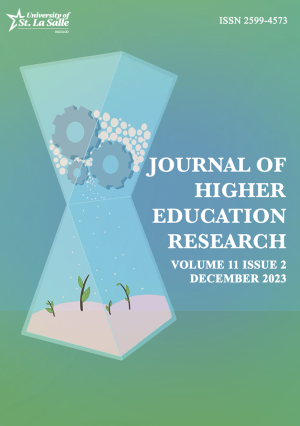Lived Experience on Nonpharmacological Relief Among Clients with Anxiety and Depression from Chronic Gastritis
https://doi.org/10.70228/YJHER2024008
Cite this article Read this article
ABSTRACT
Nonpharmacological relief refers to methods of managing emotions and stress without medication, emphasizing techniques like mindfulness, cognitive-behavioral strategies, and traditional practices such as "tui na" and "gua sha." The purpose of this study was to explore the lived experience of patients with chronic gastritis when using nonpharmacological interventions for emotional management, who are aged 34 to 75, with varied educational backgrounds and occupations, residing in both urban and rural areas, with household incomes ranging widely, and diagnosed with their respective conditions for durations spanning from 2 to 30 years. Patients with chronic gastritis who experienced negative emotions of anxiety or depression were involved in the face-to-face interviews in the hospital using qualitative descriptive phenomenological research design. Nine participants were selected using nonprobability purposive sampling with a semi-structured interview guide for in-depth interviews for data collection. Inductive content analysis methods were used to analyze data and explore patient experiences in coming up with the themes of the study. Four themes emerged with cognitive, attitudinal, and behavioral strategies for using nonpharmacological methods for emotional management, namely: (1) Nonpharmacological Coping Strategies, (2) Self-Directed Support, (3) Effectiveness, Financial and Time Concerns, and (4) Barriers. This study proposes a model for evaluating nonpharmacological interventions in patients with chronic gastritis to assist them in developing appropriate behavioral adaptations and self-management skills and assess the effectiveness of strategies.
Keywords: lived experience, nonpharmacological relief, anxiety, depression, chronic gastritis

Volume 11 Issue 2, 2023 EDITION
Published 2023
Editor's Note
Dear Readers, We are pleased to present the Volume 11, Issue 2 (2023) of the Journal of Higher Education Research. This issue brings together a diverse collection of studies that address significant topics in education, healthcare, and well-being, showcasing research that is both relevant and impactful. This issue includes studies that highlight the importance of psychosocial factors in learning and practice. Cao and Espinosa examine how parenting styles influence study engagement among vocational nursing students, with self-compassion potentially mediating this relationship. Meanwhile, Yanling and Garcia shed light on the factors contributing to death anxiety among ICU nurses, emphasizing the need for tailored mental health interventions to strengthen the self-efficacy of ICU nurses. Similarly, Xing and Lachica highlight the growing demand for death education, pointing on the necessity of preparing nursing students for end-of-life care. From the perspective of patient care, Wang and Dolendo investigate how the fear of movement, or kinesiophobia, physical exercise and self-efficacy affect patients undergoing peritoneal dialysis, showcasing its impact on the quality of life of the patients. Chen and Cadena evaluate the effectiveness of a modified simulation tool to improve the skills of anesthesia nurses, emphasizing the value of hands-on training in healthcare. Mental health is another key theme in this issue. Li and Diva share the lived experiences of patients using nonpharmacological approaches to manage anxiety and depression related to chronic gastritis. This study proposes a model to assist the patients in developing appropriate behavioral adaptations and self-management skills and assess the effectiveness of strategies. Yang and Chua identify predictors of blood pressure in hypertensive patients, contributing to better hypertension management program. Lastly, two studies explore ways to enhance quality of life. Shen and Garcia investigate how square dancing improves sleep and well-being among middle-aged and older women, highlighting the importance of community-based physical activities. Song and Lachica report findings on the role of meaning in life and coping styles in supporting breast cancer patients undergoing chemotherapy. We are deeply grateful to our authors for their valuable contributions and to our reviewers for their time and expertise in refining this issue. A special thanks to the staff and Dr. Lota Largavista, Director of the Publication and Engagement Office, for their unwavering support in producing this volume. We hope you find this issue thought-provoking and useful in your professional practice and academic endeavors. Sincerely, JOVAL N. MARTINEZ Editor-in-Chief


